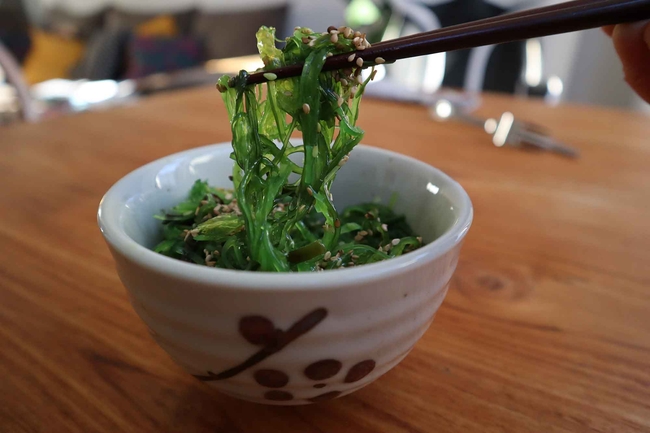What will we actually eat in the future? Climate change, population growth and scarce resources make this question more topical than ever. One possible answer could be: vegetables from the sea.
Marine algae are not only healthy due to ingredients such as unsaturated fatty acids, proteins, minerals and antioxidants, but they also taste excellent! Compared to agriculture, the cultivation of marine vegetables requires significantly less fresh water, fertilizer and arable land.
Algae account already for the majority of marine aquaculture production and in many Asian countries they are traditionally an integral part of the menu. The advance of the sea vegetable also on German plates could be hindered by people's lack of acceptance towards new foods.
Therefore, this project takes first steps to help new generations overcome their skepticism towards algae-based foods in the long term.
Age-appropriate modules are developed to enable pupils in grades 5/6 and 10-12 to get to know the organism algae with all their senses during a visit to the school chemistry laboratory (University of Bremen).
Through experiments in small groups, targeted information and tastings, pupils shall be enabled to be more open towards algae as food in the future.





